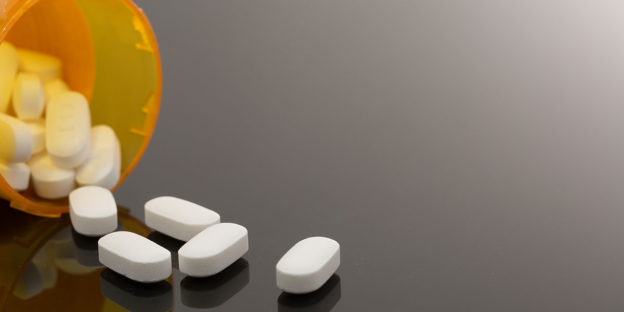 Dangerous drug interactions are a common problem that results in fatal consequences for thousands of patients every year. According to the US National Library of Medicine, “Drug interactions are a leading cause of morbidity and mortality.” Individuals who are taking methadone as part of a maintenance program to overcome opiate addiction must be aware of the potential dangers associated with the use of other drugs or substances while they are taking methadone.
Dangerous drug interactions are a common problem that results in fatal consequences for thousands of patients every year. According to the US National Library of Medicine, “Drug interactions are a leading cause of morbidity and mortality.” Individuals who are taking methadone as part of a maintenance program to overcome opiate addiction must be aware of the potential dangers associated with the use of other drugs or substances while they are taking methadone.
Potentially toxic drug interactions can occur when methadone is mixed with other substances. Drug interactions are blamed for many of the deaths that have recently taken place. In addition to the dangers that can come from the use of prescription drugs while taking methadone, dangers also exist with interactions between cocaine, alcohol and other substances.
If someone you love is abusing methadone, call our helpline for a free referral into an inpatient rehab center that can help. Assistants are available 24 hours a day, 7 days a week to support you. Call 1-888-605-7779.
Interactions with Medications Used to Treat HIV
Historically, HIV is directly related to intravenous drug use. Many opioid users become infected with HIV and later seek treatment options to help them overcome their addiction to heroin or similar drugs. While there are several medical treatments, including methadone, that can treat heroin dependence, certain HIV medications can cause dangerous drug interactions if methadone maintenance treatment is attempted.
- Zidovudine – Patients being treated for HIV using the medication Zidovudine who are prescribed methadone have reported the development of symptoms similar to opioid withdrawal which may include: bone and joint pain, insomnia and depression.
- Videx – This medication can cause high concentration levels of methadone which will lead to upset stomach for some patients.
- Delaviridine – this medication, when taken with methadone, can inhibit the clearance of the opioid rom the body and may lead to opioid toxicity which can result in cognitive alterations and decreased respiration.
Interactions with Antidepressant Medications
Studies show that as many as 50% of those who become addicted to an opiate suffer from a higher than average level of depression. Many require medications for the treatment of underlying mental illness while others do not begin taking the medication until after they begin an attempt to quit taking opioids.
The following medications that are commonly used to treat depression can cause dangerous interactions when taken with methadone:
- Fluxotine – this medication can reduce the plasma levels of methadone in the body rendering the individual into a withdrawal state.
- Sertraline – the use of this medication along with methadone can lead to higher concentrations of the drug in the user and may cause toxicity.
Side effects of associated with the use of antidepressant medications while using methadone as part of an opioid maintenance program include:
- Fever
- Tachycardia
- Tachypnea
- Confusion
- Agitation
- Altered mood
Interactions with Over-the-Counter Medications & Supplements
Certain over-the-counter medications and herbal supplements can also cause dangerous drug interactions when methadone is taken in conjunction with the substance. St. John’s wort, an herbal supplement, should not be used in conjunction with methadone as it can lead to an increased metabolism of the drug which will cause the rapid elimination of methadone and may lead to heightened withdrawal symptoms as if the methadone is not being used.
Interactions with Anticonvulsant Medications
Patients who suffer from seizures or certain mental health disorders such as schizophrenia may be prescribed an anticonvulsant such as Carbamazepine or phenytoin. Serious side effects may occur if these patients also take methadone. Side effects can rapidly induce the rate of metabolism of methadone causing serious drug interactions and dangers for the user.
Interactions with Illicit Drugs
Cocaine, methamphetamine, an stimulants that are commonly prescribed for the treatment of hyperactivity disorders such as ADD or ADHD can all interact with methadone. Cocaine reduces the overall effectiveness of methadone and may lead to rapid opioid withdrawal in some patients. Methamphetamine, though not directly related to the negative drug interactions associated with methadone use, should also be avoided.
Stimulants, including ADHD medications, can cause serious side effects if the user takes them while also taking methadone. The drug interactions are not clinically observed but the dangers are real. A stimulant leads to increased alertness and heightened sense of energy while the methadone leads to sedation and relaxation. Combined, the effects can be dangerous to the user’s heart and other vital organs.
Dangers of Drug Interactions
Interactions of methadone with other drugs can lead to an array of potentially serious problems for the user. When HIV drugs are being used and methadone interacts with them, there is heightened risk of viral mutations and the development of a resistance to treatment which can lead to serious consequences for the user.
For those who suffer from increased metabolism of methadone which leads to rapid withdrawal symptoms, relapse is one of the most significant dangers. If relapse occurs, there is an increased risk of intravenous drug use which can lead to unsafe practices and further complications associated with infection, abscesses and other serious conditions.
For immediate help, to overcome addiction and get your life back on track, call 1-888-605-7779.

